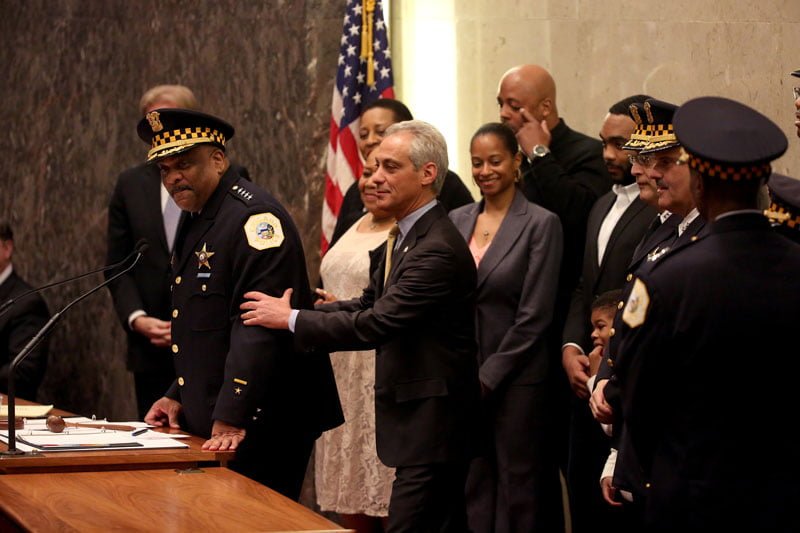
As part of an ongoing series of talks on issues pertaining to race and the Black Lives Matter movement, the Center for Black Diaspora invited Charles Epps, a professor from the University of Kansas to speak to students on the complexity of police discrimination in police stops, which he studied and wrote about for nearly a decade.
The talk was unintentionally symbolic. Hours before Epps spoke, the police accountability task force released its scathing report on the policies and practices of the Chicago Police Department (CPD), finding that blacks were stopped more times than whites. It was, for some, the equivalent of saying water is wet.
“I already knew about this — I knew it was a problem,” Kayla Johnson, a DePaul student who attended the talk, said. “As black people we know how policies work because we’ve been let down by policies.”
The overlap between Epps’ talk and the findings highlights the difficult period Chicago, and many other cities in the nation, are currently facing. After police shootings and protests, many officials have been forced to re-examine how the police are doing their jobs and the disconnect from the communities they’re in and why. Chicago is among them.
Other cities around the country have faced similar events — the majority of them involving young black men and women killed by police. Many have created task forces or oversight groups in order to initiate change. The public safety and policing work group in Baltimore, where Freddie Gray was killed in April 2015, announced 22 recommendations and a bill that would grant more rights to victims of police brutality. Activists don’t believe it will work.
For Chicago, the report cites that the road to Chicago’s current predicament was a long and winding one, one marred by racism, the mentality of CPD officers, the failure of officials to make accountability a top priority and underinvestment in human capital. In simpler terms, the city implemented its own code of silence that largely allowed shootings to happen and remain under wraps.
“The Task Force heard over and over again from a range of voices, particularly from African-Americans, that some CPD officers are racist, have no respect for the lives and experiences of people of color and approach every encounter with people of color as if the person, regardless of age, gender or circumstance, is a criminal. Some people do not feel safe in any encounter with the police,” the report said. “Racism and maltreatment at the hands of the police have been consistent complaints from communities of color for decades.”
Epps’ talk coincides with the release of his book, “Pulled Over,” which breaks down years of data that focuses on police stops and the discrimination he found in them. Though expecting to find some discrimination, Epps said the result was more shocking than he expected.
“We thought that the discrimination would be something that occurred officer by officer, but it’s a policy and institutional issue,” Epps said. “This is a problem we could address through institutional reform if we take this window of opportunity.”
The report issued by the accountability task force backs what Epps said in a few ways: though black people and white people get pulled over or stopped by police, there is a disparity in what happens after that.
Epps found that more black people are stopped, ticketed, asked why they’re in the area and arrested — and the report puts his data into context for the city. The task force team found that, between 2008 and 2015, 299 African-Americans were shot by police officers (or 74 percent of the total group of people shot by police). In that same time period, 33 white people were shot, or 8 percent. The same can be said of tasers (76 percent to 8 percent) traffic stops — 46 percent to 27 percent — and other street stops — 72 percent to 9 percent.
“We’ve internalized these actions and we think they’re normal. We’ve had an alienated experience because we’re black,” Brandon Miller, an activist in attendance, said. “The media has created a safe opportunity for people to speak on (this issue) and hopefully heal.”
Though the findings showed the problems within the police system, and those who are supposed to be in charge of accountability efforts, it did propose changes to help people feel more comfortable with the police and vice versa. Among the recommendations were a restructuring of the Chicago Alternative Policing Strategy (CAPS) program, citywide summits and expanding CPD’s body camera pilot program, but this is just a blueprint. Follow through is key.
“Some people say this is hard to deal with, but this is a major problem,” Epps said. “If we address it the right way, we can fix this.”

